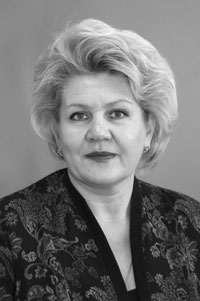Seasonal changes in functional state of cardiovascular system in female students with different levels of physical activity
Ключевые слова:
: functional capabilities, cardiovascular system, adaptive capabilities, physical loads.Аннотация
Objective of the study was to assess seasonal changes in the functional capabilities of the circulatory system of female students with different physical activity levels.
Methods and structure of the study. During the study, we assessed the cardiovascular system functionality in two groups of female students. The first group was made of the female skiers studying at sports universities, the second group – of the female students not engaged in sports. The subjects’ response to physical loads were assessed based on the indicators reflecting both their adaptive capabilities and cardiovascular system functionality.
The indicators included: heart rate (bpm), systolic and diastolic blood pressure (mmHg), pulse pressure and average dynamic pressure (mmHg), systolic volume (ml) and MBV (l/min). The average daily values of these indicators were used to calculate: Kerdo index, index of functional changes in the circulatory system, or adaptive capacity, type of self-regulation of circulation, circulatory deficiency coefficient, circulatory endurance coefficient, circulatory efficiency coefficient, Robinson index or double product. The resulting digital material was subjected to standard mathematical processing by the method of variation statistics with the calculation of the average value and its error.
Results and Conclusion. Given the correct distribution of physical loads in the long-term prospects, there should be no negative consequences of changes in the central regulatory vector, which determines the predominant distribution of the load among the structural elements of the body, namely sympathicotonia. However, this possibility should be taken into account, otherwise the change in the central regulatory mechanism will lead to the strengthening of the catabolism characteristic of the strenuous functioning and utilization of the bodily reserves and, as a consequence, to the reduction not only of adaptive but also functional capabilities of athletes, which could affect their sports results.
Библиографические ссылки
Povzun A.A., Grigoryev V.A., Apokin V.V. et al. Comparative analysis of seasonal changes in body adaptive capacities of female skiers based on biorhythm indices. Teoriya i praktika fiz. kultury. 2010. No. 8. p. 95-98.
Povzun A.A., Apokin V.V., Povzun V.D., Usaeva N.R. Active sporting female students' biorhythmic structure: seasonal variations. Teoriya i praktika fiz. kultury. 2017. no. 1. pp. 83-85.
Pogodina S.V., Globenko R.R., Lukavenko A.V. Systematization of chronobiological observations in rating and modeling of functional capabilities of professional athletes of different ages. Nauka i sport: sovremennye tendentsii. 2018. No. 4. pp. 44-49.

Опубликован
Версии
- 2022-01-03 (4)
- 2022-01-03 (3)
- 2021-12-20 (2)
- 2021-11-01 (1)
Как цитировать
Выпуск
Раздел
Лицензия

Это произведение доступно по лицензии Creative Commons «Attribution» («Атрибуция») 4.0 Всемирная.
